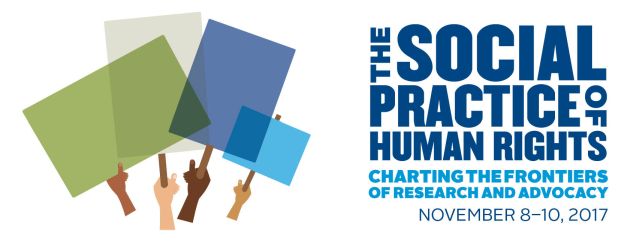
Start Date
11-8-2017 1:30 PM
Keywords
human trafficking, human rights, public health, epidemiology
Abstract
Human trafficking (i.e., modern slavery) includes myriad forms of sex and labor trafficking. Widely ranging estimates of the prevalence of human trafficking are commonly cited; at the same time, accurate data on these phenomena remain elusive, and assumptions rather than empirical evidence about the nature, targets, and proliferation of trafficking often dominate public policy discourse.
In this paper, we describe the ways in which this lack of accurate data on basic prevalence rates has led to key limitations in anti-trafficking work. First, this lack of data prevents a clear understanding of the problem of trafficking. Second, this deficit limits our ability to target effective interventions for trafficking. Third, a lack of accurate data prohibits the measurement of the impact of anti-trafficking initiatives. Finally, large estimates of trafficking risk creating both panic and helplessness among the public and policymakers.
Historically, trafficking prevalence data has been monitored by either law enforcement or NGOs, both of which approach this problem with their respective biases and limitations. Conceptualizing and approaching trafficking as a public health problem offers a multidisciplinary synthesis of advantages. However, this approach also has inherent risks.
This paper critically appraises existing systems of data collection for human trafficking and outlines arguments for a public health approach to trafficking, including an analysis of risks and benefits.
We synthesize literature on ethics, human rights, and public health to propose a model for developing a system that is simultaneously ethical, human rights-centered, and optimally effective. We also connect critical issues in considering equity of benefits versus risks when implementing a model for public health data collection on human trafficking activity.
Included in
Clinical Psychology Commons, Social Policy Commons, Social Psychology Commons, Social Statistics Commons
Doing Greater Good, While Doing No Individual Harm: A Public Health Approach to Human Trafficking Using a Human Rights-Centered Model
Human trafficking (i.e., modern slavery) includes myriad forms of sex and labor trafficking. Widely ranging estimates of the prevalence of human trafficking are commonly cited; at the same time, accurate data on these phenomena remain elusive, and assumptions rather than empirical evidence about the nature, targets, and proliferation of trafficking often dominate public policy discourse.
In this paper, we describe the ways in which this lack of accurate data on basic prevalence rates has led to key limitations in anti-trafficking work. First, this lack of data prevents a clear understanding of the problem of trafficking. Second, this deficit limits our ability to target effective interventions for trafficking. Third, a lack of accurate data prohibits the measurement of the impact of anti-trafficking initiatives. Finally, large estimates of trafficking risk creating both panic and helplessness among the public and policymakers.
Historically, trafficking prevalence data has been monitored by either law enforcement or NGOs, both of which approach this problem with their respective biases and limitations. Conceptualizing and approaching trafficking as a public health problem offers a multidisciplinary synthesis of advantages. However, this approach also has inherent risks.
This paper critically appraises existing systems of data collection for human trafficking and outlines arguments for a public health approach to trafficking, including an analysis of risks and benefits.
We synthesize literature on ethics, human rights, and public health to propose a model for developing a system that is simultaneously ethical, human rights-centered, and optimally effective. We also connect critical issues in considering equity of benefits versus risks when implementing a model for public health data collection on human trafficking activity.


